Integral City Network of Year 2023: Global Ecovillage Network
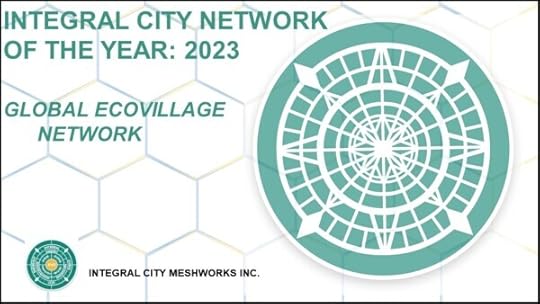 The Global Ecovillage Network (GEN) catalyzes communities for a regenerative world. GEN is a growing network of regenerative communities and initiatives that bridge cultures, countries, and continents.GEN builds bridges between the 4+1 Voices of the City – that GEN names as policy-makers, governments, NGOs, academics, entrepreneurs, activists, community networks and ecologically-minded individuals across the globe in order to develop strategies for a global transition to resilient communities and cultures.
The Global Ecovillage Network (GEN) catalyzes communities for a regenerative world. GEN is a growing network of regenerative communities and initiatives that bridge cultures, countries, and continents.GEN builds bridges between the 4+1 Voices of the City – that GEN names as policy-makers, governments, NGOs, academics, entrepreneurs, activists, community networks and ecologically-minded individuals across the globe in order to develop strategies for a global transition to resilient communities and cultures. What is an Ecovillage?
What is an Ecovillage?GEN’s definition of an ecovillage aligns with Integral City’s 5 Maps – revealing their inner, outer, individual and collective intelligences. GEN defines an ecovillage is an intentional, traditional or urban community that is consciously designing its pathway through locally owned, participatory processes, and aims to address the Ecovillage Principles in the 4 Areas of Regeneration (social, culture, ecology, economy into a whole systems design).
GEN sees Ecovillages as living laboratories pioneering beautiful alternatives and innovative solutions. They are rural or urban settlements with vibrant social structures, vastly diverse, yet united in their actions towards low-impact, high-quality lifestyles.
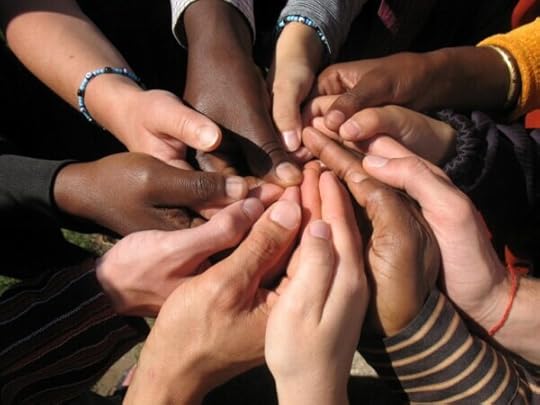 Who is in the GEN Network?GEN is composed of 5 global spanning regional networks plus the youth arm:
NextGEN
Latin America
North America
Africa
Oceania & Asia
Europe
Who is in the GEN Network?GEN is composed of 5 global spanning regional networks plus the youth arm:
NextGEN
Latin America
North America
Africa
Oceania & Asia
Europe
The network is made up of approximately 10,000 communities and related projects where people are living together in greater ecological harmony.
Some network members include large networks like Sarvodaya (2,000 active sustainable villages in Sri Lanka); the Federation of Damanhur in Italy and REDES in Senegal; as well as small rural ecovillages like Gaia Asociación in Argentina and Huehuecoyotl in Mexico.
It also includes urban rejuvenation projects – based on the Map of Regeneration (see below) – like Los Angeles EcoVillage and Christiania in Copenhagen; permaculture design sites such as Crystal Waters, Australia, Cochabamba, Bolivia and Barus, Brazil; and educational centres such as Findhorn in Scotland, Centre for Alternative Technology in Wales, Earthlands in Massachusetts and many more.
Map of Regeneration OverviewSocialEcovillagers tend to actively work to build trust, collaboration and openness between people, and to make sure they feel empowered, seen and heard. Ecovillages often provide a sense of belonging through community relationships, common projects, shared goals, and social processes, but do not demand that everyone is the same – unity and strength through diversity is important to the ecovillage movement.
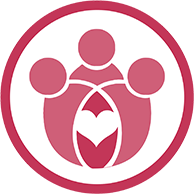 Nurture diversity and cohesion for thriving communitiesDevelop fair, effective and accountable institutionsPractice conflict facilitation, communication and peacebuilding skillsEmpower collaborative leadership and participatory decision makingEnsure equal and lifelong access to education for sustainabilityPromote health, healing and wellbeing for allCulture
Nurture diversity and cohesion for thriving communitiesDevelop fair, effective and accountable institutionsPractice conflict facilitation, communication and peacebuilding skillsEmpower collaborative leadership and participatory decision makingEnsure equal and lifelong access to education for sustainabilityPromote health, healing and wellbeing for allCultureEcovillages aim to build or regenerate diverse cultures that support people to empower and care for each other, their communities and the planet. Many actively engage with practices that encourage people to feel deeply connected to each other, to the planet, and to themselves. Celebration, art, dance and other forms of creative expression are often embraced as central to thriving human life and communities. Most ecovillages find their own ways to talk about, connect with, respect and support life and the beings and systems that sustain it.
 Clarify vision and higher purposeNurture mindfulness and self-reflectionEnrich life with art and celebrationHonour indigenous wisdom and welcome positive innovationEngage actively to protect communities and natureReconnect to nature and embrace low-impact lifestylesEcology
Clarify vision and higher purposeNurture mindfulness and self-reflectionEnrich life with art and celebrationHonour indigenous wisdom and welcome positive innovationEngage actively to protect communities and natureReconnect to nature and embrace low-impact lifestylesEcologyEcovillages aim to access food, shelter, water and energy in ways that respect the cycles of nature. They aim to integrate humans with the rest of nature in ways that increase biodiversity and regenerate ecosystems, and that give people a chance to experience their interdependence with systems and cycles of life on a direct and daily basis.
 Grow seeds, food and soil through regenerative agricultureClean and replenish sources and cycles of waterMove towards 100% renewable energy and transportInnovate and spread green building technologiesWork with waste as a valuable resourceIncrease biodiversity and restore ecosystemsEconomy
Grow seeds, food and soil through regenerative agricultureClean and replenish sources and cycles of waterMove towards 100% renewable energy and transportInnovate and spread green building technologiesWork with waste as a valuable resourceIncrease biodiversity and restore ecosystemsEconomyEcovillages aim to build economic practices and systems that contribute to sharing of resources, mutual support, and strong local economies and networks that serve the needs of local people and ecosystems. Most ecovillages actively work to provide sustainable alternatives to the mainstream economy and monetary system, and reclaim ways of thinking about wealth and progress that include all aspects of life. Local currencies, sharing, social entrepreneurship, circular economy and collaborative forms of ownership are central to many ecovillages.
 Reconstruct the concepts of wealth, work and progressCommit to responsible production, consumption and tradeCultivate social entrepreneurship for local regenerationIncrease economic justice through sharing and collaborationEnsure equitable access to land and resourcesUse banks and currencies that strengthen communitiesIntegral Design
Reconstruct the concepts of wealth, work and progressCommit to responsible production, consumption and tradeCultivate social entrepreneurship for local regenerationIncrease economic justice through sharing and collaborationEnsure equitable access to land and resourcesUse banks and currencies that strengthen communitiesIntegral DesignSome principles apply to all Areas of Regeneration, and help bring them together in holistic designs for resilient communities and systems. In GEN, the integral design approach to design and regeneration is paired with a strong focus on collaboration and participation. This means that the principles of integral design are put into practice in ways that actively include everyone concerned and encourage transparency at every level.
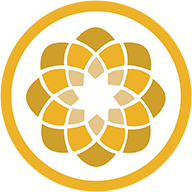 Learn from nature and practise whole systems thinkingIdentify assets, needs and leverage pointsAdapt solutions to scale and contextBe aware of privilege and use it for the benefit of allBuild alliances across all dividesEngage all stakeholders in designs for the futureSpread core patterns of regenerationListen to the feedback of the world
Learn from nature and practise whole systems thinkingIdentify assets, needs and leverage pointsAdapt solutions to scale and contextBe aware of privilege and use it for the benefit of allBuild alliances across all dividesEngage all stakeholders in designs for the futureSpread core patterns of regenerationListen to the feedback of the world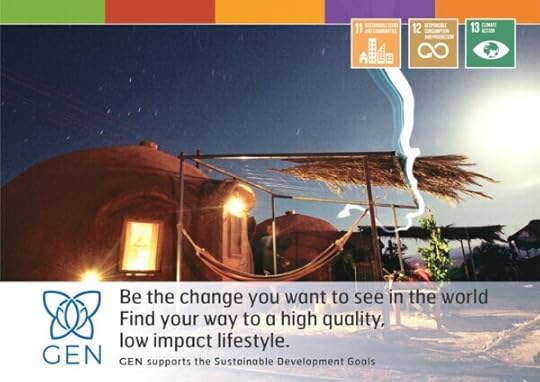 GEN International Purpose
GEN International PurposeGEN’s shared purpose is to link and support ecovillages, educate the world about them, and grow the regenerative movement – to inspire, scale and facilitate communities and people from all walks of life to become active participants in the transition to a resilient and regenerative human presence on Earth.
GEN International’s role is to provide global platforms, voice and coordination to help the network achieve its vision and mission.
GEN NetworkVisionThe Global Ecovillage Network envisions a world of empowered citizens and communities, designing and implementing their own pathways to a sustainable future, and building bridges of hope and international solidarity.
MissionTo innovate, catalyze, educate and advocate in global partnership with ecovillages and all those dedicated to the shift to a regenerative world.
GoalsTo advance the education of individuals from all walks of life by sharing the experience and best practices gained from the networks of ecovillages and sustainable communities worldwide.To advance human rights, conflict resolution, and reconciliation by empowering local communities to interact globally, while promoting a culture of mutual acceptance and respect, effective communications, and cross-cultural outreach.To advance environmental protection globally by serving as a think tank, incubator, international partner organization, and catalyst for projects that expedite the shift to sustainable and resilient lifestyles.To advance citizen and community participation in local decision-making, influencing policy-makers, and educating the public, to accelerate the transition to sustainable living.Congratulations to Global Ecovillage Network, Integral City Network of the Year 2023.===
Learn More About GENRead more about the Global Ecovillage Network:
===
For prior Integral City of the Year Awards see:Global City Collaboration – City Collaboration of the Year 2022
Urban Arena for Just & Sustainable Cities – City Region of the Year 2021
Edmonton – City of the Year 2020
Amsterdam – City of the Year 2019
6AIKA Finland – Cities of the Year 2018
Russia’s 3 City Associations – City of the Year 2017
Marilyn Hamilton's Blog
- Marilyn Hamilton's profile
- 3 followers



